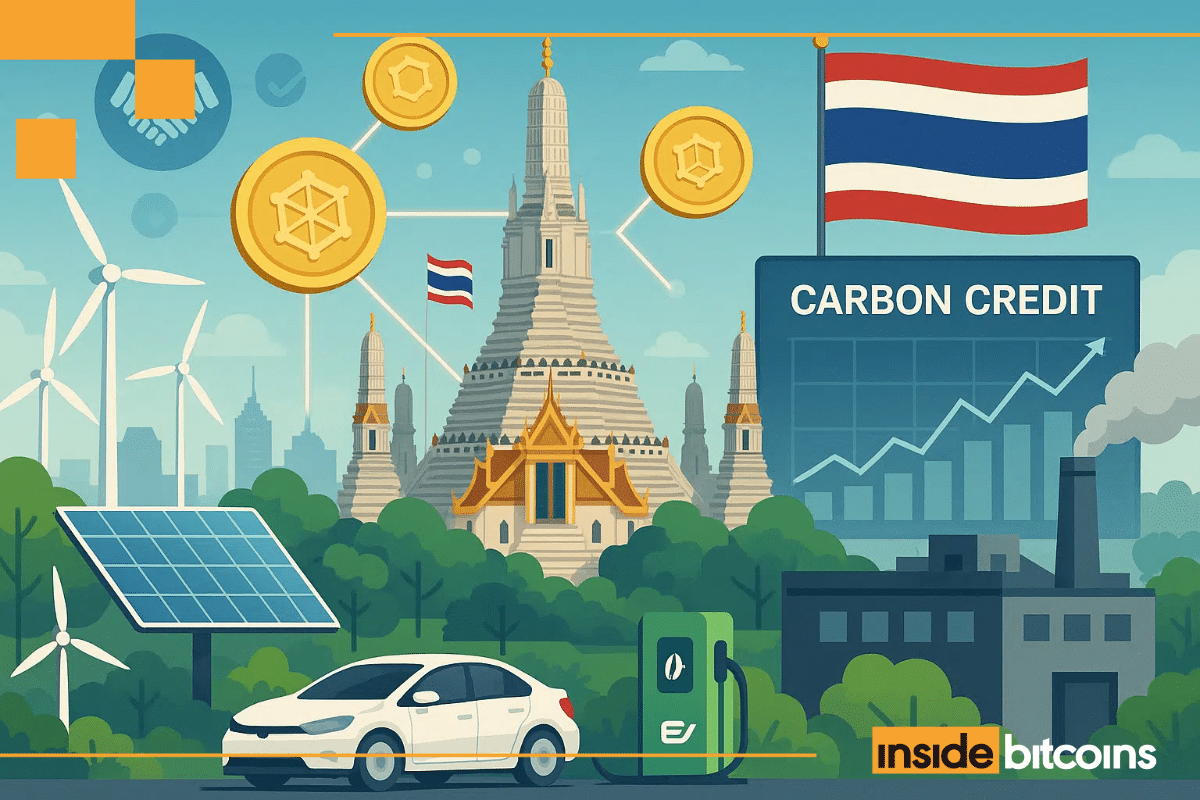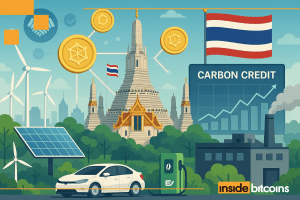Thailand is taking significant steps to position itself as a hub for carbon trading by revising its cryptocurrency regulations. The proposed changes aim to enable the tokenization of carbon credits, carbon allowances, and renewable energy certificates using blockchain technology. This initiative is expected to attract digital asset managers, brokerage firms, and traders, aligning with the country’s vision of becoming a leader in sustainable finance.
Regulatory Adjustments to Boost Carbon Markets
In August last year, the Thai Securities and Exchange Commission (SEC) updated its utility token framework, excluding consumer utility tokens from regulatory oversight. This decision inadvertently restricted digital asset managers from offering emission reduction-related tokens, as these were categorized as consumer utility tokens. However, the SEC reevaluated its stance and introduced a draft amendment in March. The new proposal acknowledges blockchain’s potential to advance carbon markets and Thailand’s green economy. By allowing participation from digital asset firms, the amendment supports Thailand’s goal of achieving carbon neutrality by 2050. Public consultation on this amendment is currently underway.
Blockchain’s Role in Enhancing Transparency
Blockchain technology offers transparency and immutability, which are critical in addressing greenwashing concerns. It facilitates third-party monitoring while reducing issues like data duplication and low-quality carbon credits. Additionally, blockchain can lower token issuance and operational costs, encouraging developers to launch projects and improving the liquidity of carbon assets in trading markets.
In 2025, the carbon credit market is likely to usher in a new outbreak under the empowerment of blockchain cryptocurrency. Bring new growth points to the global economy.
In the Southeast depressed market, Thailand plans to officially launch the Global Warming Act in 2025 and… pic.twitter.com/9eCNwPiGBH— CCarbon – GLOBAL CARBON INCLUSIVE (@ccarbonWorld) March 30, 2025
Challenges in Blockchain-Based Carbon Trading
Despite its advantages, blockchain-based carbon trading faces certain risks. Certification body Verra has raised concerns about cryptocurrency platforms failing to update carbon credit statuses promptly, which could lead to retired credits being reused for token transactions. Consequently, Verra prohibited blockchain carbon credit tokens in 2022.
Measures to Revitalize Thailand’s Carbon Market
Thailand’s carbon credit market has struggled with oversupply and low prices for years. To address this issue, the SEC announced plans in January to launch a new carbon credit trading platform and establish a voluntary carbon market by 2027. Additionally, the Thai cabinet approved a carbon tax mechanism in March, integrating carbon pricing into excise taxes on fuel and related products at a rate of 200 Thai baht per ton (approximately $5.90 USD).
Partnerships to Strengthen Market Infrastructure
To enhance its market infrastructure, the SEC has partnered with Intercontinental Exchange (ICE), a leading global energy derivatives trading platform and carbon credit trading group. Leveraging ICE’s expertise in U.S. and European markets, Thailand aims to develop a comprehensive trading platform that can expand into emerging markets across Asia.
By easing cryptocurrency regulations and embracing blockchain technology, Thailand is setting the stage to become a prominent player in the global carbon trading market while advancing its sustainability goals.
Solaxy: A Layer 2 Solution Elevating Solana’s Capabilities
Solaxy is an innovative Layer 2 scaling solution aimed at enhancing the Solana blockchain by addressing critical challenges such as network congestion, transaction delays, and scalability limitations. By processing transactions off-chain and bundling them for settlement on Solana’s mainnet, Solaxy reduces the strain on the primary blockchain while maintaining its high security standards. This approach ensures smoother operations, faster transaction speeds, and lower costs, positioning Solaxy as a transformative addition to the Solana ecosystem.
SOLX Token: Central to Solaxy’s Ecosystem
The SOLX token is integral to the functionality of the Solaxy ecosystem. It serves as a utility token for facilitating transactions and interactions within the network. During the presale phase, investors can acquire SOLX tokens at competitive rates, with options for staking to earn rewards by locking their holdings. Following the Token Generation Event (TGE), SOLX will be listed on centralized and decentralized exchanges, increasing its accessibility and liquidity. This token-centric model not only incentivizes participation but also plays a vital role in fostering adoption within decentralized finance (DeFi) applications.
By leveraging Layer 2 technology, Solaxy aims to alleviate congestion on Solana’s network while unlocking new possibilities for decentralized applications (dApps). Its integration into the blockchain ecosystem represents a significant step forward in scalability and efficiency, offering enhanced usability for developers and end-users alike.
Related News
- Thailand Expands Cryptocurrency Framework with Stablecoin Regulatory Approval
- Thailand Explores Bitcoin Adoption with Pilot Payment Program
- Ghana Adopts Blockchain for Carbon Credit Trading
- Everything You Need to Know About Bitcoin Mining
Best Wallet - Diversify Your Crypto Portfolio
- Easy to Use, Feature-Driven Crypto Wallet
- Get Early Access to Upcoming Token ICOs
- Multi-Chain, Multi-Wallet, Non-Custodial
- Now On App Store, Google Play
- Stake To Earn Native Token $BEST
- 250,000+ Monthly Active Users


